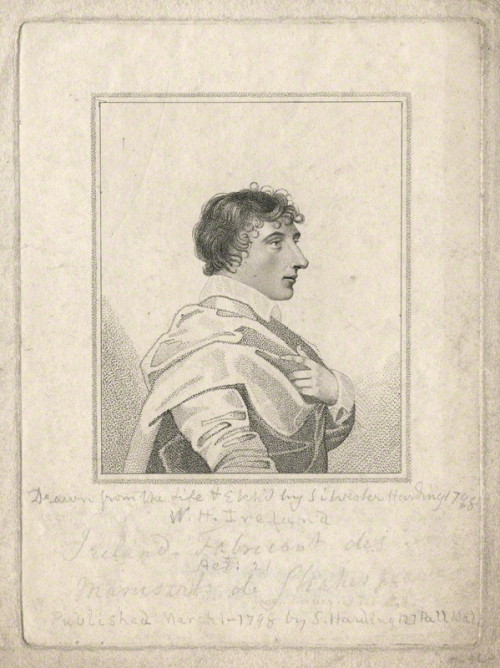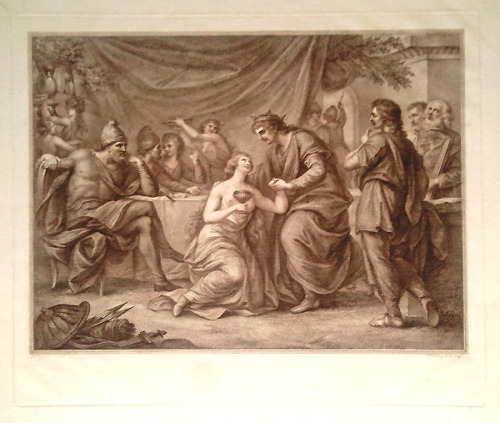Faking Shakespeare,William Henry Ireland was a down on his luck attorney, terrible poet, and lousy a
Faking Shakespeare,William Henry Ireland was a down on his luck attorney, terrible poet, and lousy actor by day, con artist by night who in the late 18th and early 19th century took the Shakespearean world by storm. In 1795 Ireland claimed to have come across a cache of letters and legal documents belonging to the playwright William Shakespeare. He published the collection in the book Miscellaneous Papers and Legal Instruments under the Hand and Seal of William Shakespeare on December 24th, 1795. The book became an instant hit across Britain and the United States, giving “insight” into the Great Bard as no personal corespondence of Shakespeare are known to exist. Ireland became wealthy by publishing the book, but he was not going to stop there.Shortly after publishing his book, Ireland then claimed that he had the manuscript of a lost Shakespearean play called Vortigern and Rowena. The play was a tragedy, similar in nature to MacBeth and Hamlet, in which a king is overthrown and murdered, resulting in the main character plotting revenge and a reclamation of the throne. News of the new lost Shakespearean play swept across the English speaking world, igniting a revival of interest in Shakespeare and his works. Ireland fooled almost everyone, he must have been a damn good con man and master forger. Even academic and expert antiquarians were convinced that it was the real deal. Francis Webb, secretary of the College of Heralds and expert in historic documents declared, “It either comes from his pen, or from Heaven”. The more grander his claims, the more willing people were to blindly gobble it all up. However there were problems with Ireland’s claims which did not have real Shakespearean experts fooled. The most notable of which was that Ireland was a mediocre at best playwright, certainly not worthy of the Great Bard. Vortigerrn and Rowena was certainly no Shakespearean masterpiece. In 1796 the play premiered to a packed house consisted of Ireland’s critics and supporters. The play went well at first, however over time the actors, many of them veteran Shakespearean actors, began to over exaggerate and over act their lines in mockery of the play. Then critics began to hoot, holler, yell catcalls and insults. Suddenly the theatre erupted into a riot as critics and supporters fought each other in a large brawl that lasted around 20 minutes. Vortigern and Rowena never played again until 2008.After the play’s premiere fiasco, criticism continued to mount against Ireland. Finally in 1805 Ireland published a confession admitting to his forgeries. Later in 1834 he attempted to republish Vortigern and Rowena under his own name, but with little success. He spent the rest of his life perpetually impoverished until his death on the 17th of April 1835. -- source link
Tumblr Blog : peashooter85.tumblr.com
#history#shakespeare#plays#fraud#con men#con man#con artists#forgery#literature


